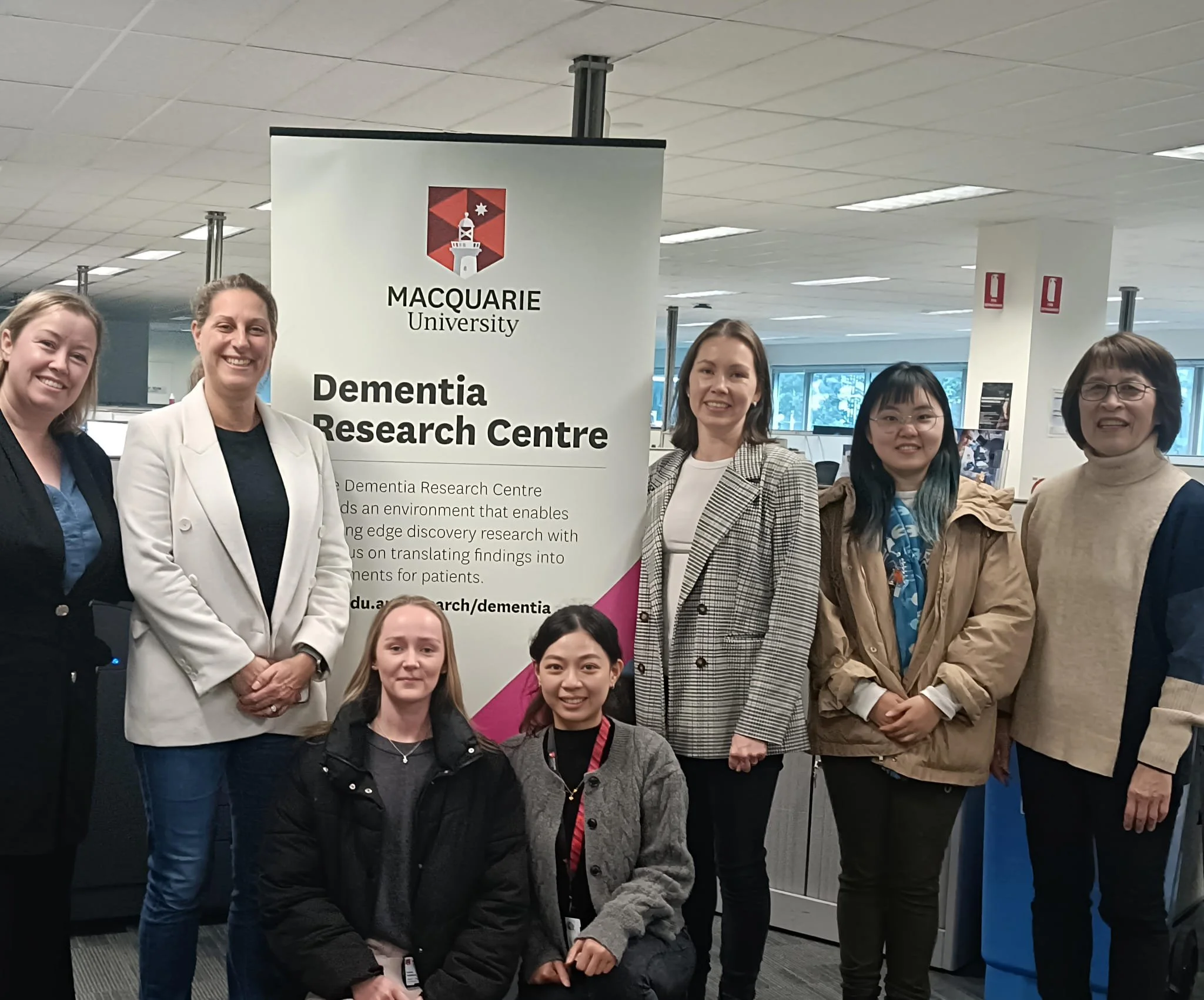Research Grant with the Macquarie University
New Australian Grant Targets Tau–SynGAP1 Interaction to Advance Treatments for SYNGAP1 and Dementia
Syngap Research Fund Australia is proud to announce the awarding of a major research grant to support groundbreaking work on SYNGAP1-related disorders at Macquarie University. Administered by the Epilepsy Foundation on behalf of Syngap Research Fund Australia, this funding valued at $200,000 marks a significant investment in Australian-based scientific innovation aimed at understanding and treating this rare neurological condition.
The grant will fund pioneering research led by Professor Lars Ittner, Director of the Dementia Research Centre at Macquarie Medical School and Dr Janet van Eersel, a fellow Group Leader in the Centre. Together, the team will explore the intricate postsynaptic relationship between the proteins tau and SYNGAP1—two key players in brain function and pathology.
Tau protein dysfunction is a hallmark of several neurodegenerative diseases, including Alzheimer’s disease and frontotemporal dementia. An estimated 433,300 people in Australia are currently living with dementia (Dementia Australia, 2025).
By investigating how tau interacts with SynGAP1 at the synaptic level, this project could reveal new mechanisms that contribute not only to SYNGAP1-related disorders but also to broader forms of cognitive decline. Understanding and modulating these interactions may open the door to innovative therapies that target tau pathology—one of the most elusive challenges in dementia research.
“Our goal is to develop novel genetic medicines that enhance SYNGAP1 function within subcellular complexes essential for its therapeutic activity,” said Professor Ittner. “At the same time, we aim to reduce the inhibitory effects of tau on SYNGAP1. This dual approach could unlock new pathways for treating SYNGAP1 encephalopathies.”
The project will involve the creation of innovative gene therapy vectors and will advance the understanding of cellular mechanisms that contribute to SYNGAP1 encephalopathies and build the foundation for future targeted treatments.
By deepening the understanding of the cellular mechanisms underlying SYNGAP1 disorders, the research lays the groundwork for future precision treatments.
“At Syngap Research Fund Australia, we are committed to accelerating the development of safe and effective treatments for SYNGAP1. Supporting innovative research like Professor Ittner’s work at Macquarie University is central to our mission. By targeting the tau–SynGAP1 interaction, this project not only advances our understanding of SYNGAP1 but also develop disease modifying treatments via vector technology. The fact that this project holds promise for broader neurological conditions, including dementia is a bonus to the Australian community.” Danielle Williams, President, Syngap Research Fund Australia
Danielle Williams and Jennifer Murphy from Syngap Research Fund Australia with members of the Macquarie University research team
Research Grant with the Murdoch Children’s Research Institute
Research Topic: Understanding the Motor Speech Profile and Linguistic Skills in SYNGAP1-Related Intellectual Disability. Dr Miya St John and Alecka Garrett
Overview: Dr St John’s research aims to systematically examine the speech and language challenges faced by individuals with SYNGAP1 related intellectual disability. This study will utilise standardised assessments to differentiate between motor-based speech disorders and cognitive-linguistic impairments, providing crucial insights for accurate diagnosis and effective therapy implementation.
“Our research is dedicated to providing families with the data they need to support their children’s communication development. We are excited to contribute to the understanding of SYNGAP1 related speech and language challenges” - Dr. Miya St John.
Research Grant with The Florey Institute of Neuroscience and Mental Health
Research Topic: Utilising Early Neurogenesis Disruption to Establish Genotype-Phenotype Correlations in SYNGAP1 Disorders. Associate Professor Snezana Maljevic, Group Head, The Florey Institute of Neuroscience and Mental Health
Overview: A/Prof. Maljevic’s research will investigate the impact of SYNGAP1 variants on early neurodevelopment using patient-derived induced pluripotent stem cells (iPSCs). This study aims to understand the correlation between early neurogenesis disruption and the severity of clinical presentations, potentially accelerating the development of targeted therapies.
“We are grateful to the Syngap Research Fund Australia and the Epilepsy Foundation for supporting our work on this rare and devastating disorder. This grant empowers us to delve deeper into understanding the disease and paves the way for developing precision therapies that could transform lives. We are honoured to be part of this meaningful journey.” Associate Professor Snezana Maljevic.




